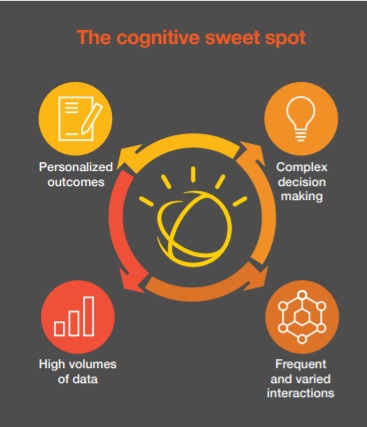With cognitive computing technologies bringing in the power to self-learn and adapt, just as humans do, HR can create a much larger impact.
Human beings are dynamic, subjective and the most complex beings. The fact that HR deals with people in an organisation, makes it the most complex of all functions. Dealing with the subjectivities and complexities of human behaviour has never been easy. However, with cognitive computing technologies bringing in the power to self-learn and adapt, just as humans do, HR can create a much larger impact through their jobs.
As per a study by IBM, the unique capabilities of cognitive systems open the door to a very different approach to HR – one that meets the challenges of today’s workforce, benefiting both the organisation and its employees. We can term it as a new HR.
Cognitive computing can analyse and learn from structured and unstructured data including photos, tweets, e-mails and natural language, both written and spoken. This means that it allows HR to understand people and their drivers and ambitions better, which can have various implications for HR.
Sriharsha A Achar, executive director & chief people officer, Apollo Munich Health Insurance Company, shares three interesting ways in which cognitive computing could make the HR manager’s job better.

These are the sure signals that soon we will see use of cognition in many next-generation applications, as cognitive computing provides new tools that help create a more efficient and effective HR function and workplace.
1. Cognitive computing could help manage employee queries and requests that may be currently undertaken by a contact centre or an HR administrator
2. It could capture the expertise of top performers and then use this knowledge to accelerate the performance of other employees, which could have a wave effect across the business, enhancing the speed and accuracy of data-heavy work
3. Cognitive computing could also help in talent acquisition. The data-driven search aspects of recruitment can be run by a system, which has a far greater ability to search for and track talent.

“These are the sure signals that soon we will see use of cognition in many next-generation applications, as cognitive computing provides new tools that help create a more efficient and effective HR function and workplace.” Achar says.
With its detailed insights, cognitive computing allows HR to make better people decisions and plan the right interventions, wherever required.
Anil Misra, CHRO, Magicbricks opines that the three key challenges any HR professional faces are to do

with attracting, developing and retaining talent. “While technology may be assisting us with all three, cognitive computing has helped us significantly with retention by helping us enhance our employee engagement drives,” he shares.
Misra elaborates that running employee engagement surveys was a tedious, time-consuming task earlier, which is why it was mostly an annual activity controlled manually by HR.
He says, “It could never really gauge the real mood of the people as it remained as a tick-in-the-box activity, while people’s perceptions and satisfaction levels would change across months or over the year.” On the other hand, with the help of an AI and cognitive computing-enabled tool, Magicbricks is now able to gauge its people’s engagement and satisfaction level every week.
While technology may be assisting us with all three, cognitive computing has helped us significantly with retention by helping us enhance our employee engagement drives.
The system runs a short weekly survey with just four to five questions, with demographically split groups of people in the company. It analyses the responses and shares a comprehensive weekly report along with the red flags and areas that need intervention, to the CEO.

Based on the same, HR designs relevant and tailored interventions to deal with any concerns. “While HR always had a good intent for employee morale servicing, practically, it was not an easy job to do. However, cognitive computing made it possible for HR to do it on a periodic basis,” Misra opines.
Achar is also of the view that cognitive computing can be used to improve employee experience and to customise employee touch-points as he concurs, “As the day-to-day business of HR is becoming increasingly information-heavy (in both a data and a data source variety), there is an increasing strain on HR to deliver information-based solutions into the business.”
That said, the biggest hurdle that HR could face in doing so would be the lack of knowledge and skills to utilise optimally—IBM Watson being a case in point. “Capturing the process and documentation required by an organisation, and developing change management strategies to educate and train the workforce on how best to use the power of cognitive computing will be ever-present hurdles to overcome. This will take a lot of time to learn and implement,” Achar concludes.



